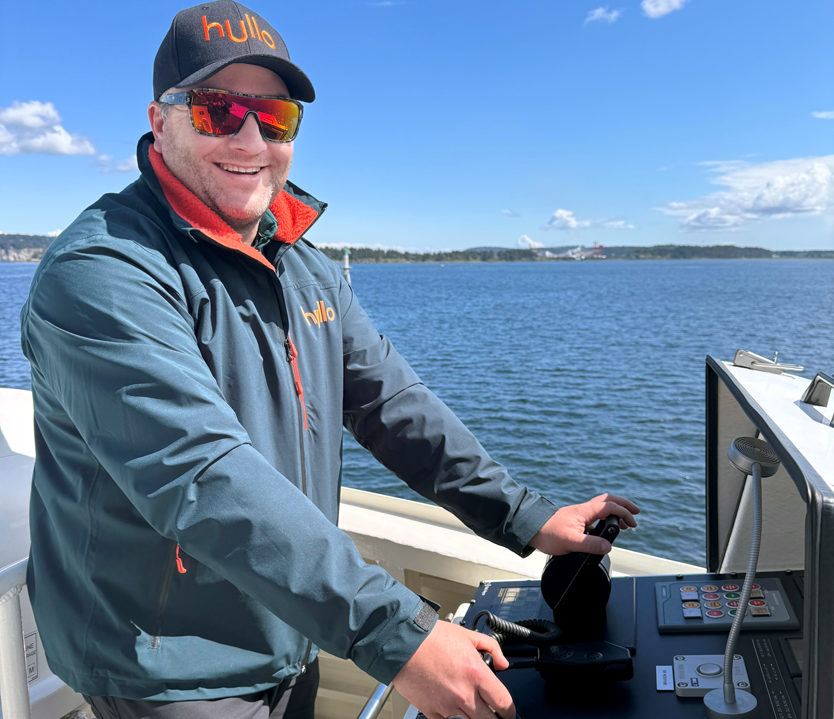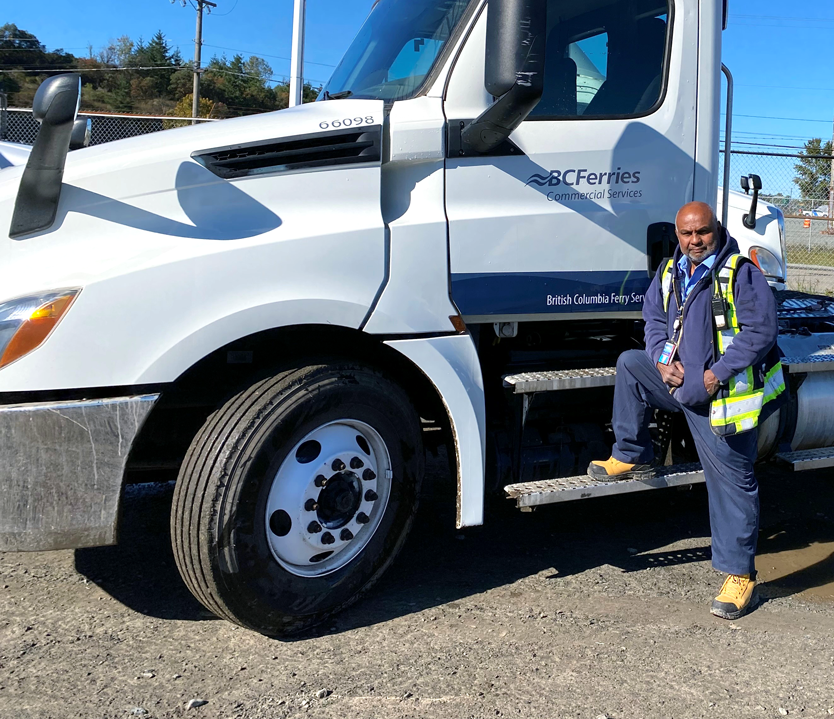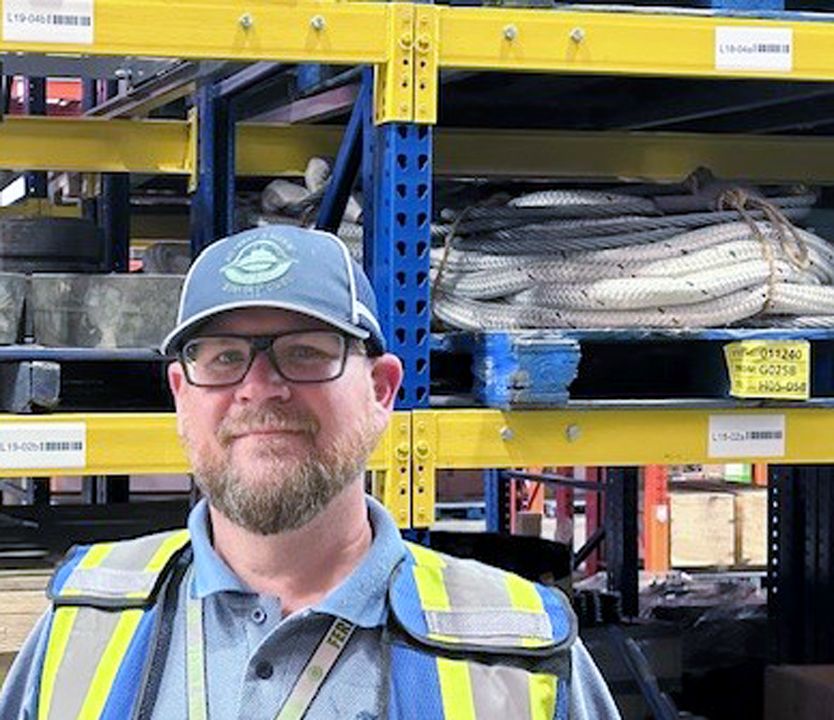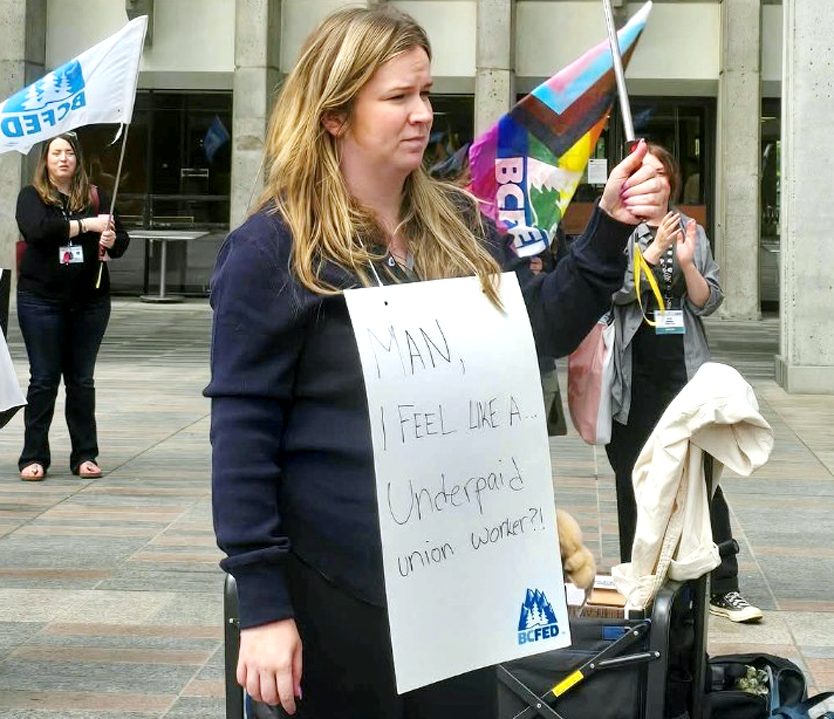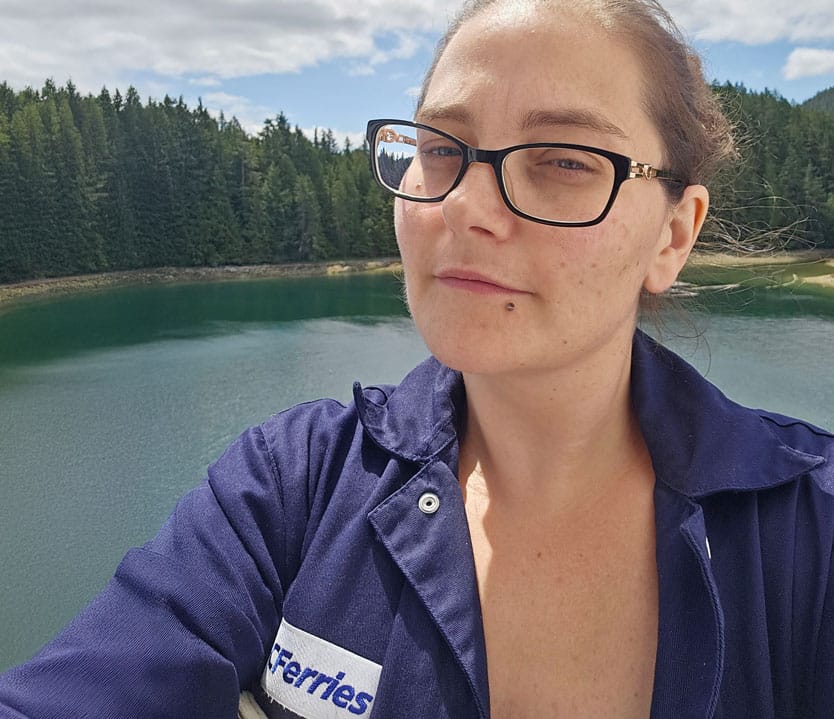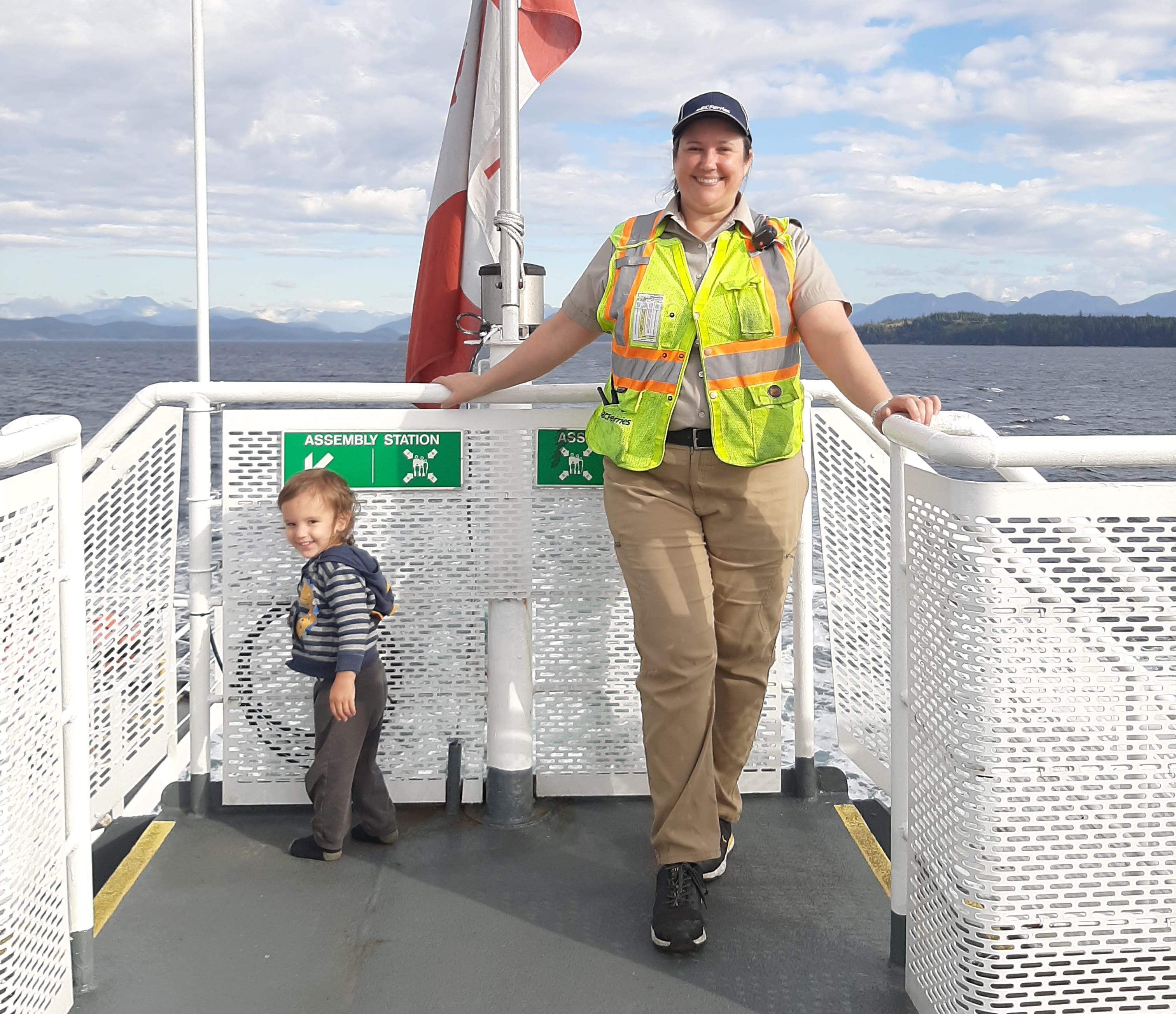
When I first moved to Cortes Island in 2015, I came from a background in education. I wasn’t sure I wanted to keep doing that kind of work, but I knew I wanted to find my place in the community. A few months in, I started doing childcare for someone who worked on the ferry and began asking all the questions: what’s good about the job, what’s hard about it, what’s it really like?
Coming from the Great Lakes in Ontario, I’d never imagined working on the ocean. As I rode the ferry back and forth, I thought, this would be a dream job. You don’t get views like this anywhere else. For a lot of locals, it never gets old and for many passengers it’s the trip of a lifetime.
What inspired me most was the idea of working outdoors, doing physical work, and still being home every day after my shift. I had no idea then that the schedule would turn out to be great, that there’d be room to advance, or that there were so many opportunities for learning and training.
That first year, though, I only worked seven days. Sometimes just getting your name on the casual list feels like a victory. One captain told me, “Stick and stay and make it pay,” and he was right. It can take time. Some people wait years to get full-time work, but it’s worth it. My husband and I even timed starting our family so I’d have a regular position by the time we had a child.
What most people don’t realize is how skilled deckhand work is. Inside our work backpacks, we carry government-issued certificates that look like passports, showing our completed competencies. We take passenger safety management, rescue boat operation, and firefighting training. The first time I suited up in the gear, I felt like a superhero. But what really stayed with me was the weight of responsibility that comes with it; the knowledge that if something happens, we know exactly what to do. We drill and train so our reactions become instinctive.
Loading vehicles is another part of the job most people don’t think about. Our ship is narrow at both ends, so we often guide passengers to really crank their wheels over to fit. It can be stressful. There’s a lot of moving traffic and we have to stay alert and calm. My years of practicing tai chi help me stay grounded. Someone told me this summer that I was the most graceful ferry worker they’d ever seen.
I’ve learned to read the energy of the car deck. It helps to remember that by the time travellers get here, they’ve been on the road for hours. They’re tired, it’s hot, they just want to get to their destination. We stay patient, we check parking brakes are set and we keep each other safe.
The proudest moments for me are when I get to share the experience with others, especially kids. Sometimes we bring families up to the bridge to meet the captain and let their child steer for a minute. Seeing the look on their faces is magic. One day a family came up, and right as we were talking about whales, a pair of humpbacks breached ahead of us, three or four times. It was one of those rare, perfect moments that remind me how lucky we are to work where we do. I love being a look out. One of the masters calls me “hawk-eye,” because I notice marine life and traffic moving a long distance away. An unexpected perk of this job is the time interacting with crew members, mates, masters, and the engineering crew. I had no idea that I’d work in a job where professionals with vast experience would be willing to share so much about themselves. I love learning so this job is definitely one for a lifelong learner!
The biggest challenge right now is crew morale. We’ve had trouble retaining crew and filling positions, which means those of us here take on more. When I first started, we’d have crew meals and get-togethers all the time. That sense of community made the long days easier. Now, with housing costs rising and fewer affordable rentals, it’s harder to find people who can afford to rent a secondary home or find a spot to place a trailer on Cortes. This used to be a job where you could support a family and pay a mortgage with extra money left over. I’m lucky that my husband works so we can afford to live on this beautiful island.
If I could change one thing, it would be to strengthen that sense of solidarity, both in the workplace and within our union. I love being part of a union and connecting with other members. In our local, we’ve been focusing on education and training. It gives us time together, a chance to talk shop and share our lives outside of work too.
It’s easy to forget, with all the routines and schedules, that this job is full of heart. I try to bring that into everything I do and I hope it rubs off on others.
Krista Mandula, secretary-treasurer, Local 11
